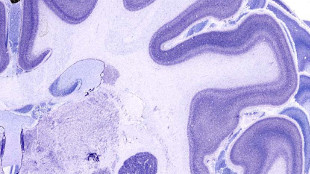When a cell divides and copies its DNA, it also makes copies of histones, the proteins that spool DNA and regulate gene expression. Since most neurons don’t typically divide, scientists have long thought that their histones also remain stagnant. A study published in Neuron yesterday (July 1) is now challenging that view, showing that neurons in mice and in humans switch out old histones for new ones, and that this process is important for brain plasticity.
“These are very exciting results, creating a new front in the field of chromatin biology,” study coauthor Ian Maze, a neurobiologist at the Icahn School of Medicine at Mount Sinai, said in a statement.
Maze and colleagues at Mount Sinai and Rockefeller University examined levels of a histone variant ...



















